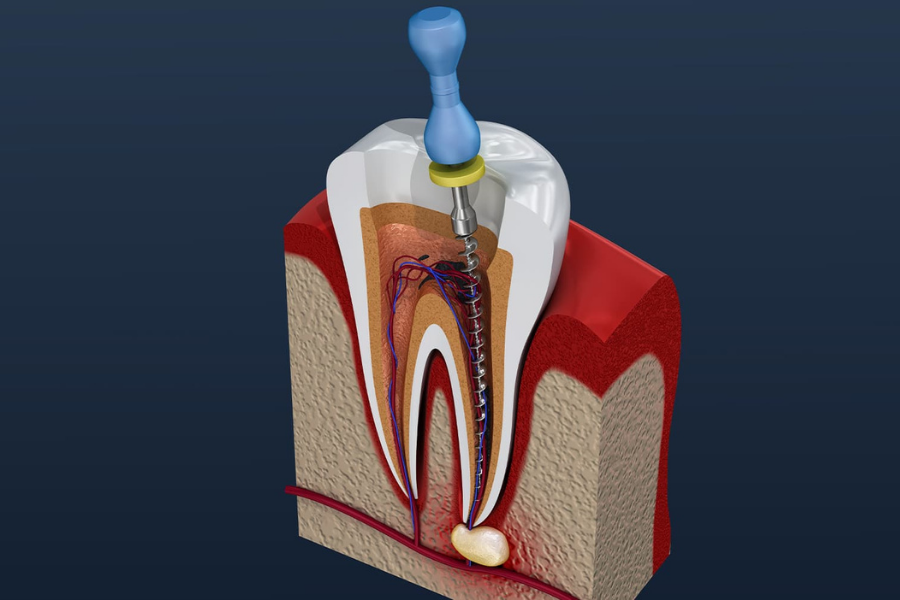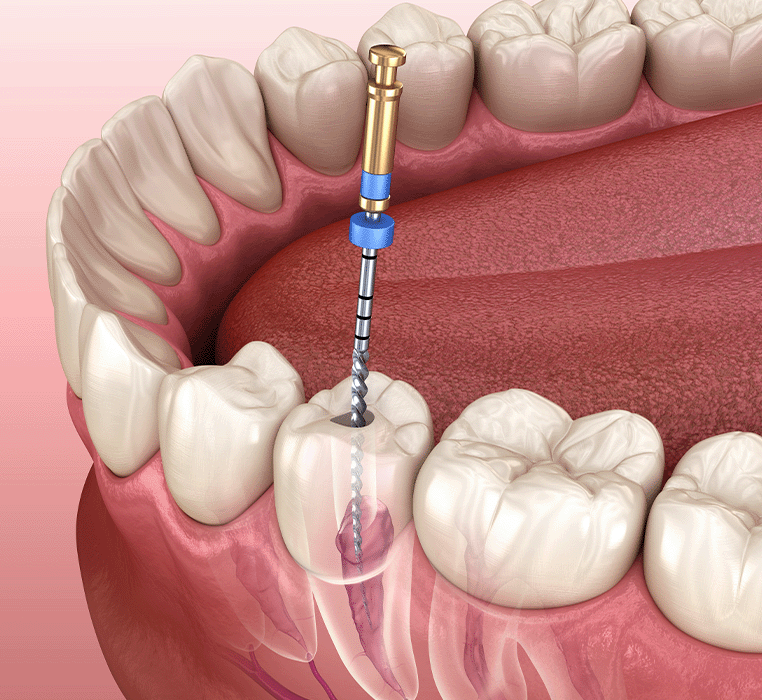
Let's talk
Still unsure? Feeling overwhelmed? Talking to a real person can give you the guidance and reassurance needed. You don’t have to do it alone. Let’s find the right doctor together.

Root canal treatment is the branch of dentistry that deals with the diagnosis and treatment of diseases and injuries to the dental pulp and surrounding tissues. One of the most common procedures performed in endodontics is root canal treatment, also known as endodontic therapy. Endodontics treatment is performed when the dental pulp, which is the soft tissue inside the tooth that contains nerves and blood vessels, becomes infected or inflamed. This can happen as a result of deep decay, repeated dental procedures on the tooth, a crack or chip in the tooth, or trauma to the face.
Endodontics is a branch of dentistry that focuses on diagnosing, preventing, and treating problems related to the dental pulp and soft tissue surrounding the root of a tooth. Endodontic treatment, commonly known as a root canal, is a procedure that involves removing the infected or inflamed pulp from inside a tooth and filling the resulting space with a biocompatible material.
This treatment is usually necessary when the dental pulp becomes infected or inflamed due to decay, trauma, cracked tooth, or repeated dental procedures. If left untreated, the infection can spread to the surrounding tissues and cause pain, swelling, and even tooth loss. Advanced endodontics treatment can help save the tooth and prevent further damage to the surrounding tissues.
The process typically involves numbing the area around the tooth, making a small hole in the tooth to access the pulp, removing the damaged or infected pulp, cleaning and shaping the root canals, filling the canals with a biocompatible material, and sealing the tooth with a filling or crown. The procedure is usually performed under local anesthesia and is generally considered a routine dental procedure. For more information about the procedure, you can get a free consultation to get an idea about topics such as root canal treatment cost and endodontic treatment Turkey Istanbul details, and experience a successful dental procedure at CLINIQUEPLUS.
A good candidate for endodontic treatment, or root canal therapy, is someone who has an infected or inflamed tooth pulp. This is typically caused by tooth decay, trauma, chips or cracks, or repeated dental procedures. Some common signs and symptoms may indicate the need for endodontic treatment.
Symptoms such as severe toothache, swollen or sensitive gums, sensitivity to hot or cold, sensitivity to food and drinks, pain when biting or chewing, discoloration of the tooth, and pus, or abscess near the tooth may indicate the need for a root canal treatment.
If you experience any of these symptoms, it is important to see a dentist or endodontist as soon as possible. In some cases, a tooth may require endodontic treatment even if there are no symptoms present. This can be determined through a thorough dental exam and imaging studies such as X-rays or CT scans.
It is also important to remember that endodontic treatment can be recommended as an alternative to tooth extracted. The most important benefits of root canal treatment are; saving the natural tooth, and helping to maintain proper chewing and biting forces. The root canal can protect the jawbone and prevent the need for more extensive dental treatments such as dental implants or bridges.

Infected root canal treatment, commonly known as a root canal, is a procedure that involves several steps. Root canal treatment steps are carried out by qualified root canal specialists.
The entire endodontic treatment process is usually completed after one or two sessions, depending on the complexity of the case. In some cases, the endodontist may place a temporary filling to protect the tooth between appointments. For more detailed information about root canal treatment Turkey, root canal treatment aftercare, and root canal treatment price, you can schedule a consultation right now.
Root canal treatment, there is usually a recovery process that takes a few days to a week. The recovery process and level of discomfort can vary depending on the complexity of the procedure and the individual patient.
You can schedule a consultation with CLINIQUEPLUS to find answers to your questions about endodontic procedures in Istanbul and the cost of root canal treatment and to experience the most suitable treatment for you. Save your tooth and save your smile with a root canal treatment. Say yes to a healthy, pain-free smile!
Root canal treatment has a very high success rate, with more than 90% of treated teeth remaining functional for many years. However, it is important to maintain good oral hygiene and attend regular dental check-ups to ensure the long-term success of the treatment.
Many people worry that a root canal will be painful, but the procedure itself should not be painful because you will be numbed with local anesthesia. Some people may experience some discomfort or sensitivity after the procedure, but this can usually be managed with over-the-counter pain medication.
As with any medical procedure, there are some risks associated with root canal treatment, such as infection, damage to surrounding teeth, or failure of the treatment. However, these risks are rare and can usually be managed with appropriate care and follow-up.


Error: Contact form not found.

Still unsure? Feeling overwhelmed? Talking to a real person can give you the guidance and reassurance needed. You don’t have to do it alone. Let’s find the right doctor together.